"Big excursion" of the Bulgarian Turks in 1989 and the situation of Muslims in modern Bulgaria
Previous articles talked about the "Bloody Christmas" of 1963 in Cyprus, Operation Attila, carried out on this island by the Turkish army, and the so-called "Cyprus Syndrome" of the General Secretary of the Communist Party of Bulgaria Todor Zhivkov, who was seriously afraid of the implementation of such a scenario in his country. In December 1984, the “Renaissance Process” campaign began in Bulgaria to change Turkish and Arabic names to Bulgarian ones, as well as to ban the exercise of Turkish rituals, the performance of Turkish music, and the wearing of hijabs and national clothes. This led to resistance and protests from ethnic Turks, which were accompanied by massive demonstrations, acts of disobedience, sabotage and even terrorist acts by Muslims and retaliatory repression by the Bulgarian authorities. There were victims on both sides (Turks killed and wounded during the protests, civilians killed and injured as a result of terrorist acts, quite a few wounded soldiers and policemen). Finally, on May 27, 1989, Todor Zhivkov demanded that the Turkish authorities open the borders for the Bulgarian Turks wishing to leave Bulgaria. Thus began the exodus of hundreds of thousands of Turks, known in Bulgaria as the "Great Excursion".
"Big excursion" of the Bulgarian Turks
All this time, the Turkish authorities have been convincing their compatriots in Bulgaria that historical they will be greeted to their homeland with all the cordiality and will provide any assistance in settling in a new place. In large cities, rallies were held, at which one could see posters with inscriptions like “To Sofia - on tanks". Some believe that only the firm position of the USSR then kept Turkey from military intervention in the affairs of the neighboring country. The United States and other NATO countries did not want nuclear war, and the Turkish authorities were warned that if they were the first to start hostilities, they would not be helped.
They did not even think about the fact that they really had to receive hundreds of thousands of people in Turkey: its leaders were sure that the communist authorities of Bulgaria would never open the border for free crossing.
In the Turkish communities of Bulgaria, resettlement to a hospitable and free from persecution Turkey has become a dream. As a result, the news of permission to leave the country caused euphoria among many and literally turned off common sense and the ability to calculate the consequences. At the same time, the decision to emigrate the inhabitants of Turkish villages, as a rule, was taken together, and fellow villagers who did not want to go to no one knows where and it was not clear why, the rest threatened with burning their houses and physical harm (after all, not all Bulgarian Turks were deeply religious, and they lived here, not bad at all). Therefore, not all of the settlers then left Bulgaria voluntarily.
From June 3 to August 21, according to official data, 311 862 people crossed the Bulgarian-Turkish border (journalists sometimes round up this figure to 320 thousand, and some even increase it to 360 thousand).
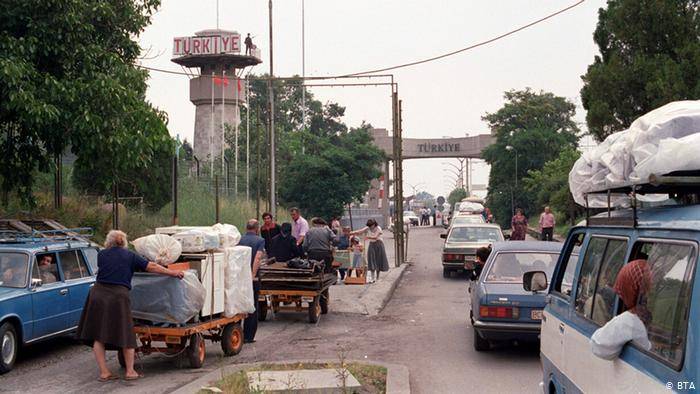
Bulgarian Turks leave the country
It seems surprising, but by that time the level of anger against the Turks was so high that in some places the local authorities destroyed the houses of emigrants so that they would not be tempted to return to Bulgaria.
Since most of the Bulgarian Turks lived in rural areas and worked on the land, the country's agricultural sector suffered heavy losses, having lost about 170 thousand workers. To harvest the harvest, the Bulgarian authorities had to send students that year.
The Turkish authorities were angry with the actions of the Bulgarian authorities and expressed all sympathy for the suffering of their fellow tribesmen, but they were completely unprepared to accept hundreds of thousands of settlers. And no one knew what to do with them at all. In this country, there was already a surplus of workers, and the local Turks were not going to give up their places. Reluctantly, the Turkish authorities allocated an amount equivalent to 85 million dollars for the settlement of the Bulgarian Muslims, the USA added another 10 million, Saudi Arabia forked out 15 million.
Initially, everyone was settled in a large camp in Edirne, then transported to smaller camps in other regions, some even ended up in Northern Cyprus, unrecognized by the world community.
In the regions, the settlers were also not met very friendly, because rumors spread that the Bulgarian special services intentionally infect them with serious infectious diseases such as HIV, tuberculosis, hepatitis and even leprosy. In addition, the mentality of the newcomers was very different from the traditional Turkish. Bulgarian Muslims were unpleasantly surprised by the archaic nature of public relations in Turkey, the citizens of this country were shocked by the secularity and relaxedness of the "guests", especially women, whose clothes and behavior seemed absolutely indecent to many. It is curious that the spread of women's shorts and short skirts in this country is associated with the appearance of the Bulgarian Muslims in Turkey. Also characteristic are the nicknames that the locals then gave to the newcomers "brothers": "Bulgarians" and "infidels".
Some of the Bulgarian Turks, disillusioned, left the camp in Edirne almost immediately. At the border, they met with new crowds of immigrants and tried to tell them what awaits them in "blessed Turkey." In response, those called them provocateurs and agents of special services, scolded them and just did not beat them.
On August 21, 1989, the Turks could not stand it and closed the entrance to their territory. Many researchers cite socio-economic considerations as the main reason: Turkey's budget was bursting at the seams, local irritation against newcomers was growing, who, in turn, expressed their dissatisfaction more and more loudly. Information about the real situation of the Bulgarian settlers was already beginning to leak into the press, and this negatively affected the international image of Turkey. But there is an opinion that the Turkish authorities decided to close the borders, realizing that they were losing that notorious "Fifth Column", and with it - the opportunity to influence the situation in Bulgaria.
Soon the reverse process of the return of disappointed Turks to Bulgaria began, and there were more than 183 thousand of them. Since the Turkish authorities issued tourist visas for them at the entrance for a period of three months, and more than half then returned back, this tragic exodus of the Bulgarian Turks was given a strange and a little funny name "Great excursion". After Bulgaria's accession to the European Union, the Turks who made the "Great Tour" got an unexpected bonus: since they did not renounce Bulgarian citizenship, now they show a Bulgarian passport when entering other European countries, and in Turkey they use a local one.
The fall of Todor Zhivkov
The growing tension in society, superimposed on problems in the economy, hastened the fall of Todor Zhivkov.
The Bulgarian secretary general, despite the pressure from Gorbachev and his entourage, tried to resist the "line on Perestroika", announcing that he had already carried it out for a long time - more than 30 years ago, when he came to power (Todor Zhivkov did not respect Gorbachev at all: he said that the Soviet secretary general " in love with himself and is engaged in idle talk ", and behind his back called him" a collective farmer-enthusiast ").
Despite certain difficulties, which were caused by the limitation of assistance from the USSR and the bankruptcy of the debtors of Bulgaria in the countries of the "Third World", in 1986-1989. in Bulgaria there was a steady growth in industrial production, and the life of ordinary Bulgarians could not be called hard.
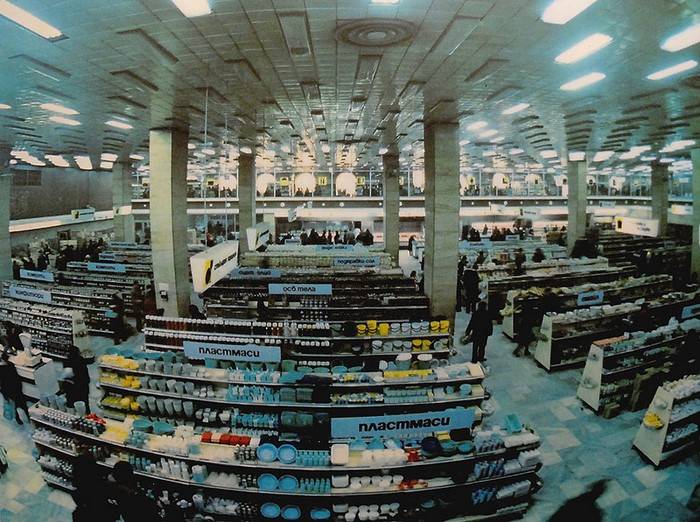
Bulgarian department store, photograph from the 80s. Source: lostbulgaria.com
In terms of living standards, Bulgaria in 1989 ranked 3rd in the CMEA and 27th in the world (after 10 years of reforms and movement along the capitalist path of development - already 96th). At that time 97% of Bulgarian citizens had their own house or a separate apartment, while in the USA only 50%. And the policy of the authorities towards Muslim Turks among Orthodox Christians did not cause much outrage, especially after the start of the terrorist attacks. Therefore, “environmental activists” were raised to fight Zhivkov. The first anti-government protests were organized in 1987-1988. in the city of Ruse (which, by the way, is called "Little Vienna" and "the most aristocratic city in Bulgaria"). The most interesting thing is that the chlorine plant, against whose activities they protested, was located in Romania - in the city of Giurge. And it was difficult to imagine how the Bulgarian authorities could close it. Break diplomatic relations with Romania? Or declare war on her?
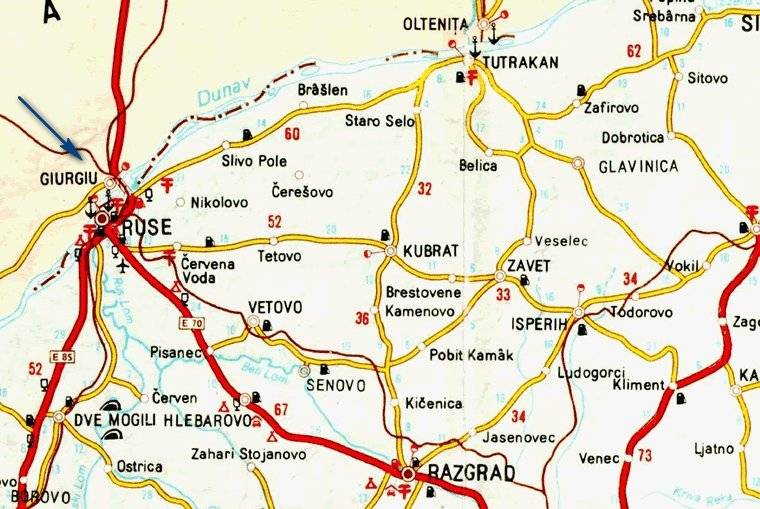
The cities of Ruse and Giurgiu on the map
Many years have passed, for a long time there are no communists in power in Bulgaria, and in the city of Ruse there are the same problems associated with the work of the Romanian plant: protesters periodically block the bridge across the Danube, connecting their city with Giurgiu, and the road leading to Varna.
Nevertheless, in 1988, the first large informal organization in Bulgaria was created - the Public Committee for Environmental Protection of Ruse.
In the capital, the rebellion against the Secretary General was led by Bulgarian Foreign Minister Pyotr Mladenov, who on October 24, 1989 called for changes in the country (“Change! - our hearts demand” - remember?) And resigned - just like Shevardnadze. He left, as it turned out, not for long: the supporters of this “people's tribune” in the Politburo on November 10, 1989, dismissed Todor Zhivkov, appointing Mladenov in his place.
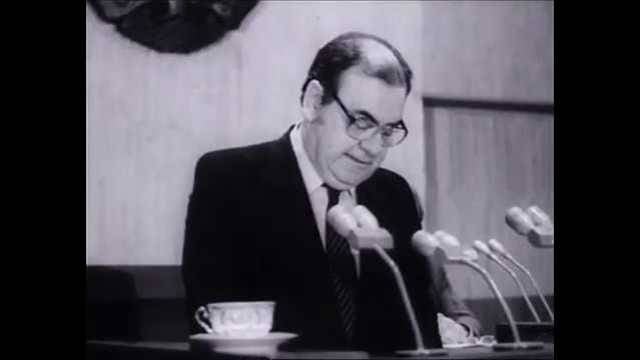
P. Mladenov's speech at the plenum of the Bulgarian Communist Party on November 10, 1989
Later, Mladenov became the first president of Bulgaria, but very quickly resigned. The fact is that from somewhere surfaced and was published an audio recording in which this democrat expressed a desire to be supported by tanks in November 1989 instead of the demonstrators (among whom there were many Turks).
The very same demonstration against Todor Zhivkov, at which, according to Petr Mladenov, there was a very shortage of tanks:
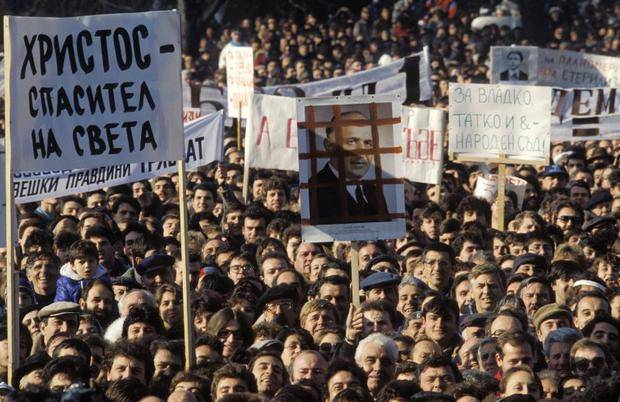
Source: year1989.pl
Todor Zhivkov was put on trial on charges of illegal enrichment, usurpation of power and forcible deportation of the Turks (although, as we remember, no one drove them out of the country, and they went to the “Great Excursion” to Turkey themselves). But as he later said in an interview:
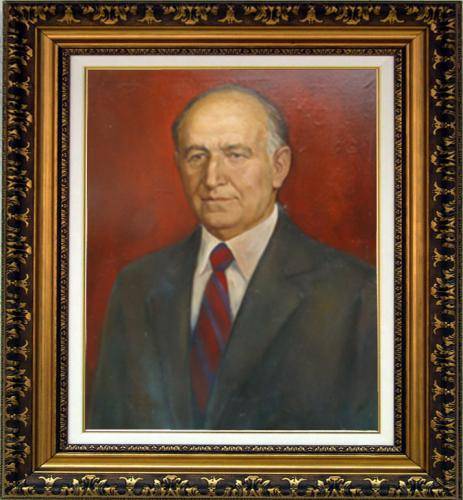
Michael Karapaunov. Portrait of Todor Zhivkov
Nevertheless, on September 4, 1991, the court sentenced Zhivkov to 7 years in prison, but due to his illness, the former secretary general was not in prison, but under house arrest. Until January 21, 1997 (when the Prosecutor General's Office replaced house arrest with a recognizance not to leave) he lived with his granddaughter, who, even after getting married, did not fundamentally change her surname. Evgenia Zhivkova achieved success, becoming both a Member of Parliament (in 2001) and a successful fashion designer (she received the Golden Needle award twice), the owner of the Zhenya Style chain of prestigious stores.
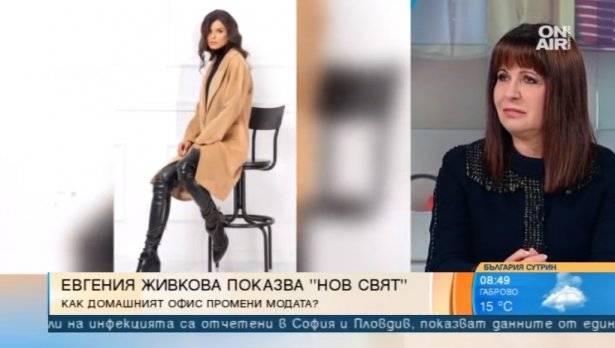
Evgenia Zhivkova presents her new collection. Source: bgonair.bg
It was in her modeling agency that the design of the uniform of the stewardesses of Bulgaria Air, a state airline, was developed.

Flight attendants Bulgaria Air
Zhivkov died in 1998 at the age of 87, and the President of Bulgaria, Petr Stoyanov, said then that with his death "the era of Bulgarian communism has ended." Not a bad compliment, by the way: few people are credited with the honor of "ending an era" (or opening a new one). Not so many years have passed since then, but who now outside Bulgaria remembers Petr Stoyanov? And who is interested in it in Bulgaria? Meanwhile, at various rallies and demonstrations, you can still see posters with the inscriptions: “Without Tosho, from den to den stava-losho” (“Without Tosho, it gets worse every day”).
The Bulgarian authorities refused to grant Zhivkov's relatives a funeral with state honors and did not even provide premises where those who wish could say goodbye to him. The stronger was their amazement and even shock when thousands of people came to his funeral, and seeing off the leader of socialist Bulgaria became a kind of slap in the face to the "democratic forces" and an impartial assessment of the activities of the new rulers of this country.
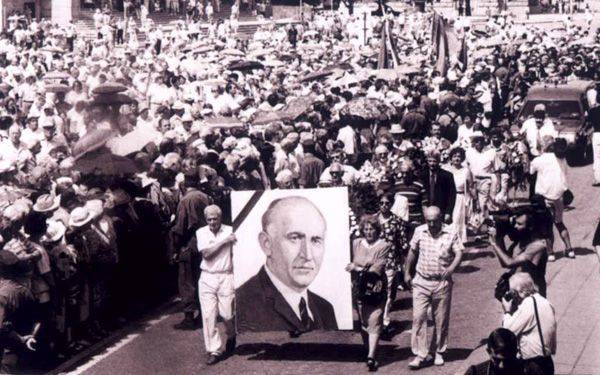
The funeral ceremony of Todor Zhivkov
Dimitar Ivanov, professor at the University of National and World Economy, director of the Stefan Stambolov Institute for Theory and Practice of Leadership, said in 2008:
I translated this quote with the help of an Internet translator, literary processing the resulting translation. It seems to me that it is absolutely correct and without distorting the meaning.
Bulgarian readers can check:
Of course, Dimitar Ivanov served in the state security organs of the People's Republic of Bulgaria, and his opinion may be biased, but his words about the data of opinion polls are absolutely correct. In modern Bulgaria, Bai Tosho (bai - literally "peasant", in rural areas is used as a form of addressing respected men who have not reached the old age, sometimes translated as "uncle", Tosho - a diminutive form of the name Todor) is really sympathetic to more than half population of the country. And even Boyko Borisov (one of the prime ministers of the new Bulgaria) commented in 2011 on the celebration of Zhivkov's centenary in his native village of Pravets (where, unexpectedly for the new authorities, people came from all over Bulgaria):
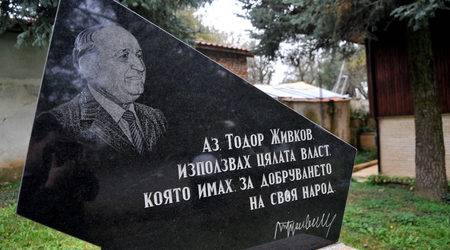
Memorial sign in the courtyard of Zhivkov's house in Pravets. The inscription reads: "I, Todor Zhivkov, used all the power I had for the good of my people."
Public organizations, the Hana Arend-Sofia Center, the Anna Politkovskaya Freedom of Expression Association, the Coalition for Fair Governance and the Center for Rehabilitation of Torture Victims, appealed to the President of the European Parliament Yezha with a request to interfere in the internal affairs of Bulgaria and prevent the celebration of this anniversary. Because this, it turns out, is “discrediting the entire democratic process in the country and humiliating the country as an EU member”. Yes, these are the liberals now in Bulgaria, and this is their idea of democracy. But they got one thing for sure: respect for Todor Zhivkov really discredits themselves, and the "achievements" of the reformers, and the "democratic process" in Bulgaria.
Muslims in modern Bulgaria
One way or another, the anti-Islamic campaign was stopped, and in 1990 about 183 thousand of the Muslims who had left for Turkey returned to Bulgaria (but there was also a return flow of economic emigration to Turkey - “for a better life”: in 1990-1997, about 200 thousand Muslims). A decision was also made on the right of the Turks who left in 1989 to a Bulgarian pension and compensation for the property left behind. Some Bulgarian Turks received dual citizenship and still live in two houses. Turkey and Bulgaria even signed an agreement on the mutual recognition of military service. New mosques and madrassas were opened in Bulgaria.
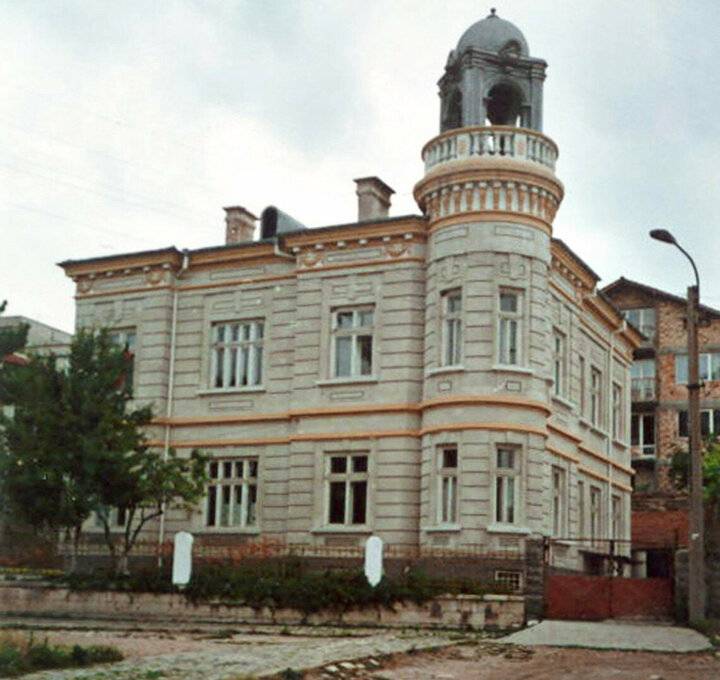
Madrasah, city of Shumen, Bulgaria
At the official level, three holidays have been established for Bulgarian Muslims - Eid al-Adha, Eid al-Adha and Prophet Muhammad's birthday: according to the Labor Code and the Law on Civil Servants of this country, Muslims these days have the right to arrange a day off at the expense of annual leave, or - no content. But Christmas and Easter are still public holidays and days off.
One of the first parties created after the fall of the communist regime was the party of ethnic Turks, the Movement for Rights and Freedom (DPS). It was headed by Ahmed Dogan, a former employee of the Department of Philosophy of the Sofia University named after St. Kliment Ohridski, previously convicted of terrorism. In the 90s. in the parliamentary elections, this party gained about 7% of the vote, but since 2005 it has significantly improved its results, now gaining from 12 to 15%.
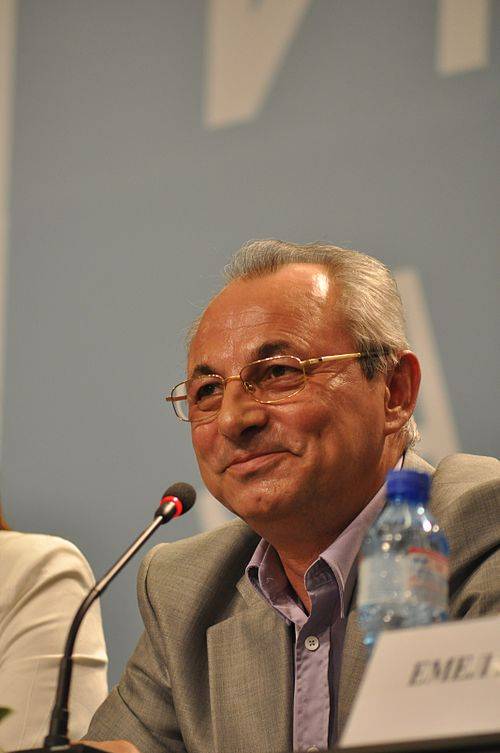
Ahmed Dogan
Currently, this party, according to Dogan himself, is "the balancer of the political system and the guarantor of ethnic peace in Bulgaria." The fact is that in this country none of the main parties (the Union of Democratic Forces, the Bulgarian Socialist Party, Citizens for the European Development of Bulgaria, the National Movement of Simeon II) can traditionally gain the number of votes required to make their own decisions. Therefore, each of these parties has to conclude an agreement with the Islamic Movement for Rights and Freedom, which uses its unique position with considerable benefit for itself.
On January 19, 2013 in Sofia, at the 8th national DPS conference in Ahmed Dogan, Oktay Yenimehmedov, a Muslim, 25-year-old activist of this party from the city of Burgas, tried to shoot. His pistol turned out to be gas and also misfired, so some consider this incident to be a staged one.
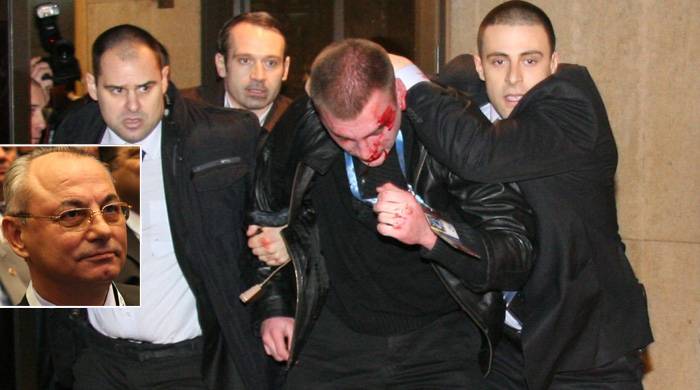
Detention of Oktay Yenimehmedov
Dogan is still the honorary chairman of the DPS and has a lot of political influence. During the protests in Bulgaria, which began in July 2020 and directed against Prime Minister Boyko Borisov (leader of the center-right party "Citizens for European Development of Bulgaria"), Dogan also got hit. The protesters called him one of the main oligarchs in Bulgaria and accused him of corruption and the creation of a number of mafia structures (for example, they claim that almost all tobacco production in this country is under the control of the DPS and Dogan personally).
And in 2016, an absolutely pro-Turkish party "Democrats for Responsibility, Freedom, Tolerance" (DOST, this abbreviation means "Friend" in Turkish) was created in Bulgaria. It was headed by a native of the Bulgarian province of Kardzhali Lutvi Mestan (curiously - a former agent of the Bulgarian state security). He succeeded Ahmed Dogan as leader of the DPS, but was removed and even expelled from the party after he approved the destruction of a Russian front-line bomber Su-2015 by a Turkish fighter in November 24. This position jarred even the founder and honorary chairman of the DPS Ahmed Dogan and other functionaries of this party. But, as you can see, Lyutvi Mestan did not disappear - he “emerged” in his historical homeland, in Bulgaria.
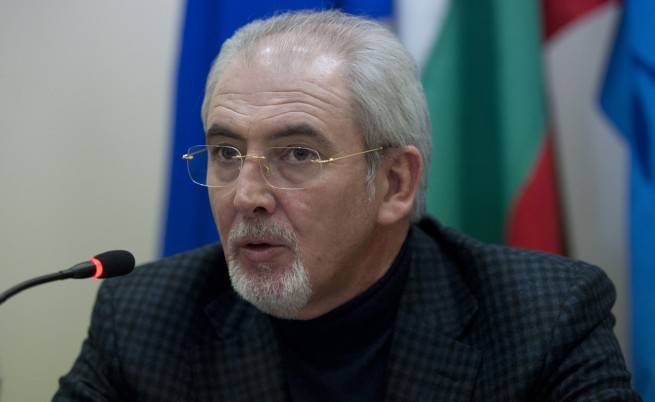
Lutfi Mestan
In 2017, the Minister of Labor and Social Security of Turkey Mehmet Muezzinoglu called on people who also have Bulgarian citizenship to go at the state expense to the border regions of Bulgaria to vote for DOST. Supporters of other parties responded by blocking dozens of buses with "vacationers" at the border. As a result, the new party was unable to overcome the 4% barrier, but, as the saying goes, "the hardest thing is the beginning." In Bulgaria, the threat of such a clear influence from abroad was taken seriously, and in 2018 the Plovdiv Regional Court terminated the activities of the Batu Platform Association, through which Turkey funded the DOST. But I think that Recep Tayyip Erdogan will find another opportunity to help this party for the new election campaign.
Currently, up to 12,2% of citizens of Bulgaria consider themselves Muslims (in France, by the way, already about 9%). Turkish is called their native language by 9,6% (another 4,1% named Roma as such, while the share of Roma in the country's population is 4,7%). For the rest, the native language is Bulgarian. In addition to Orthodox Christians and Muslims, 0,6% of Bulgarian citizens are Catholics and 0,5% Protestants.
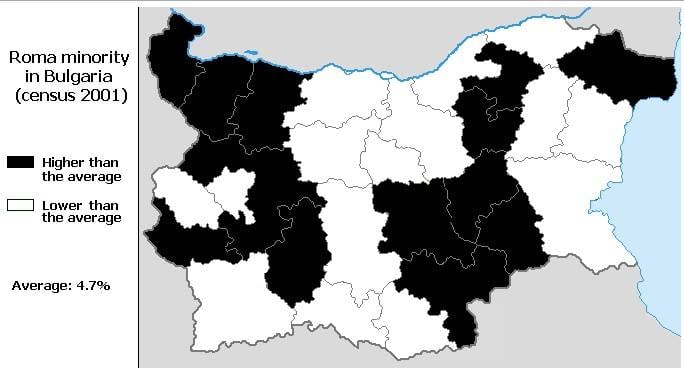
Settlement of Roma in modern Bulgaria, data from 2001
In the next articles we will continue our story about the Balkan subjects of the Ottoman sultans and talk about Serbs, Montenegrins, Croats, Albanians, Bosnians and the state of Turkey on the eve of World War I.
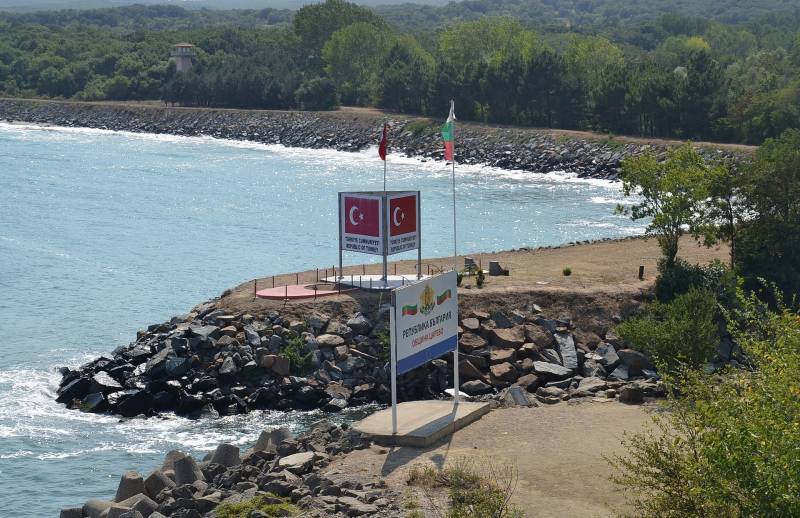
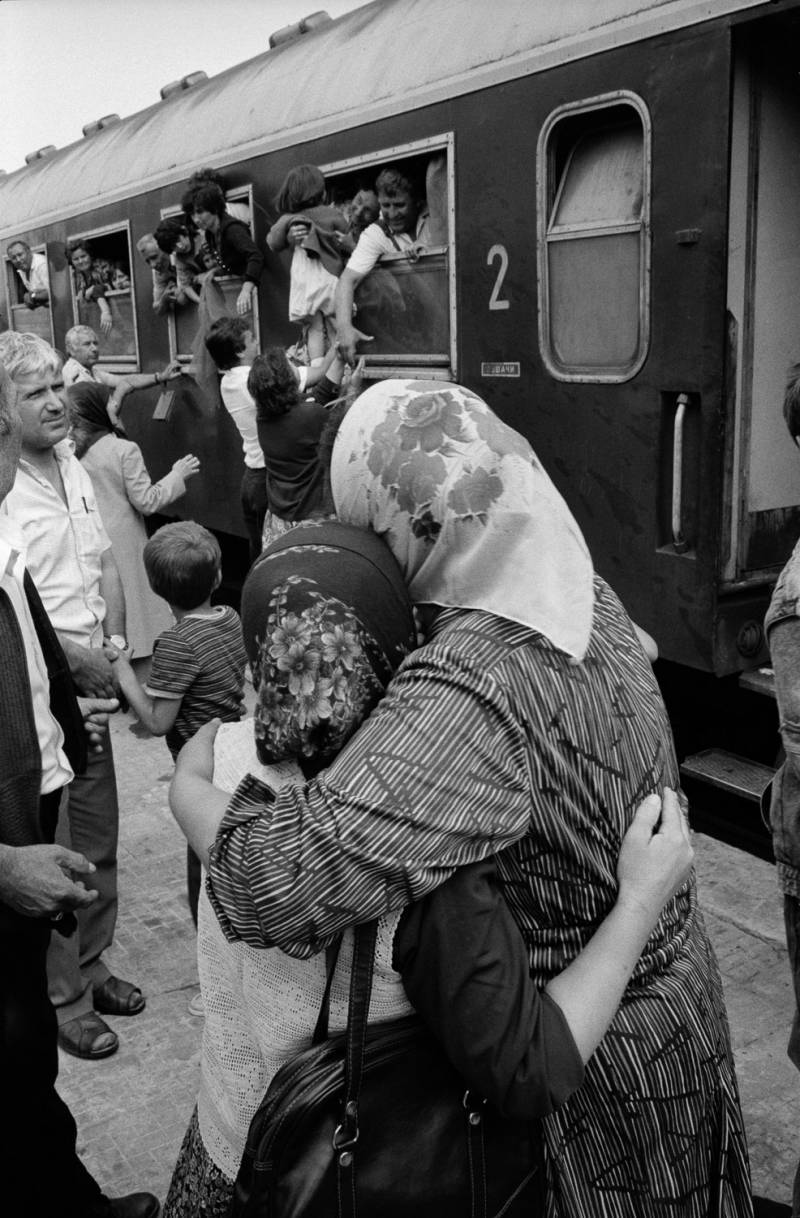
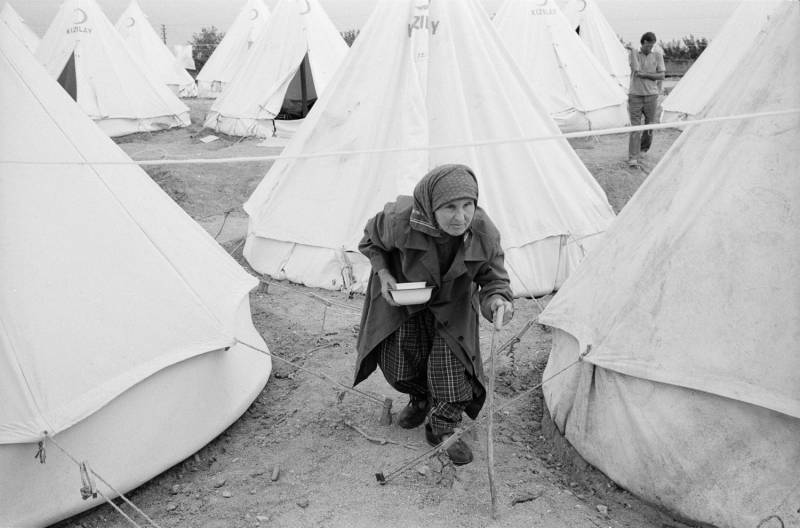
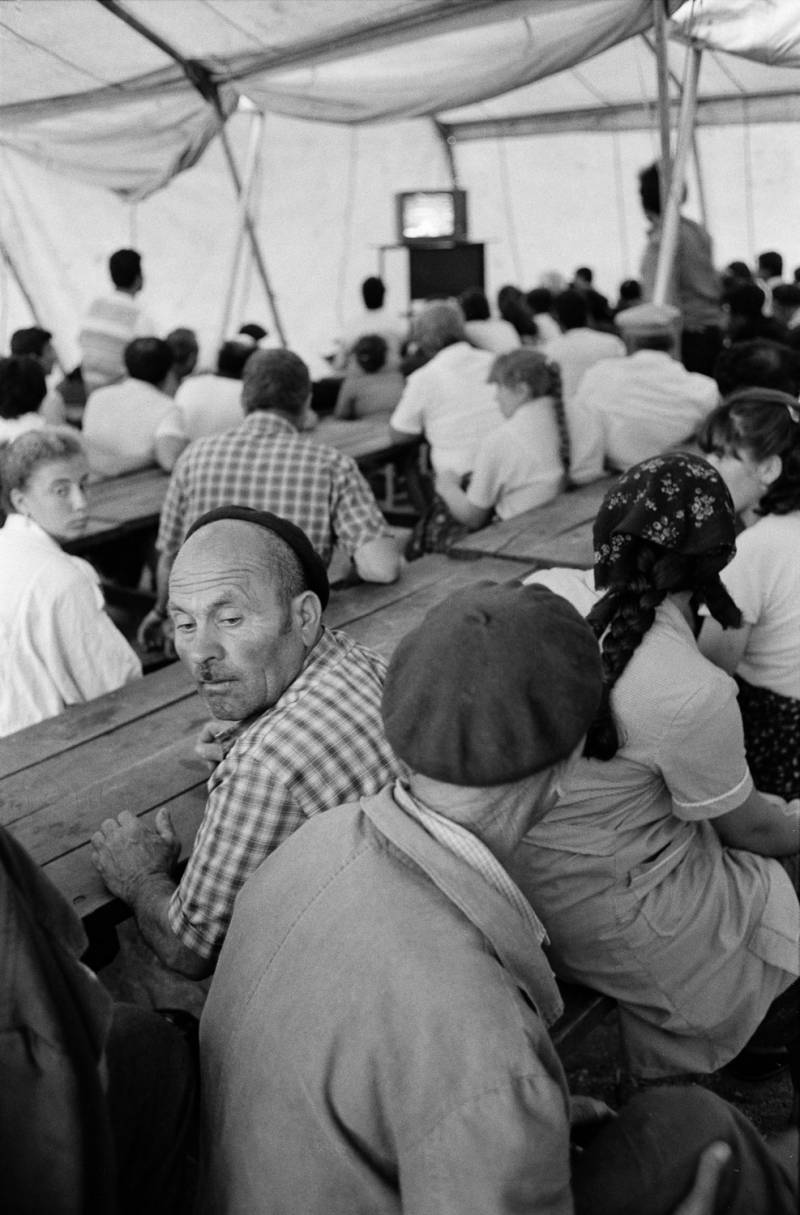
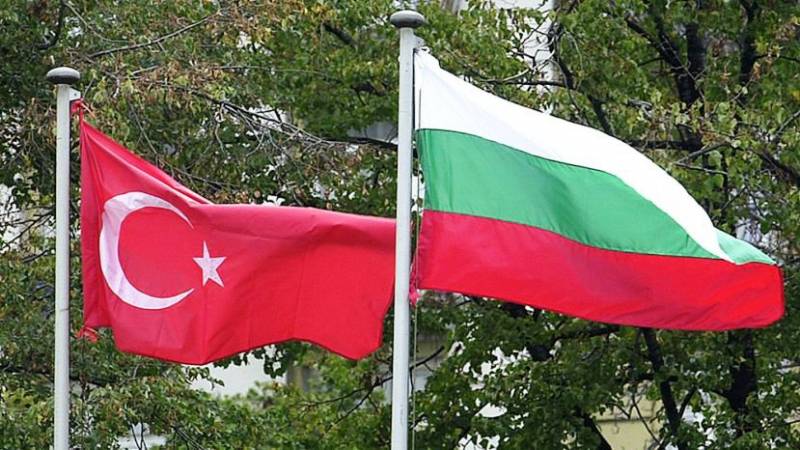
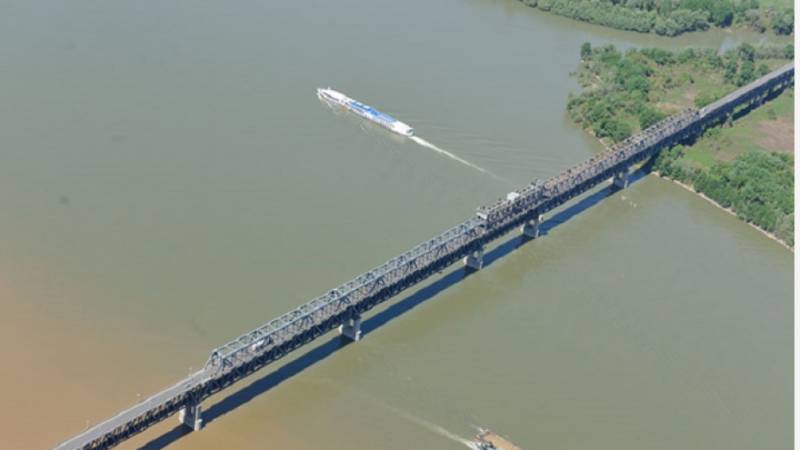
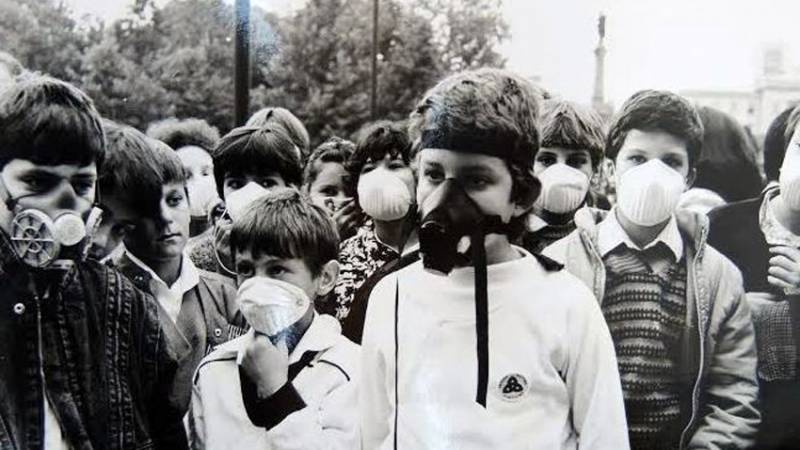
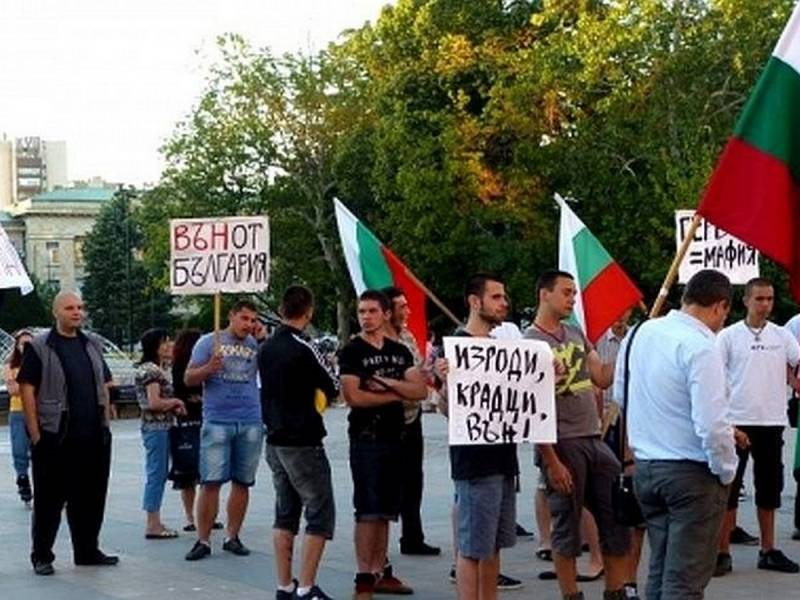
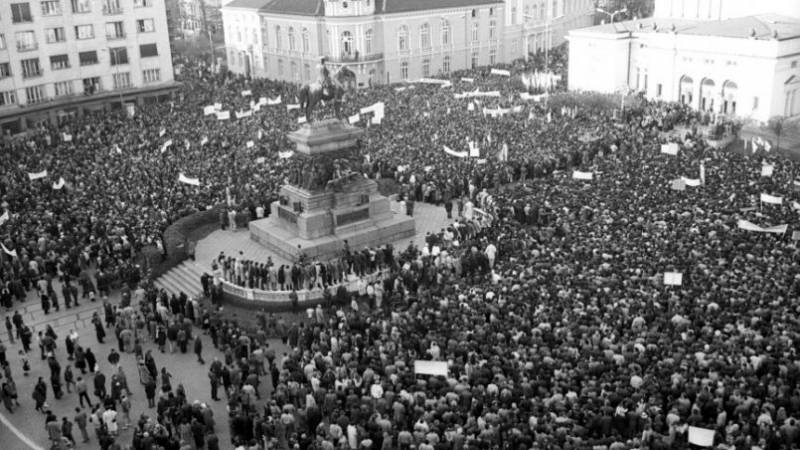
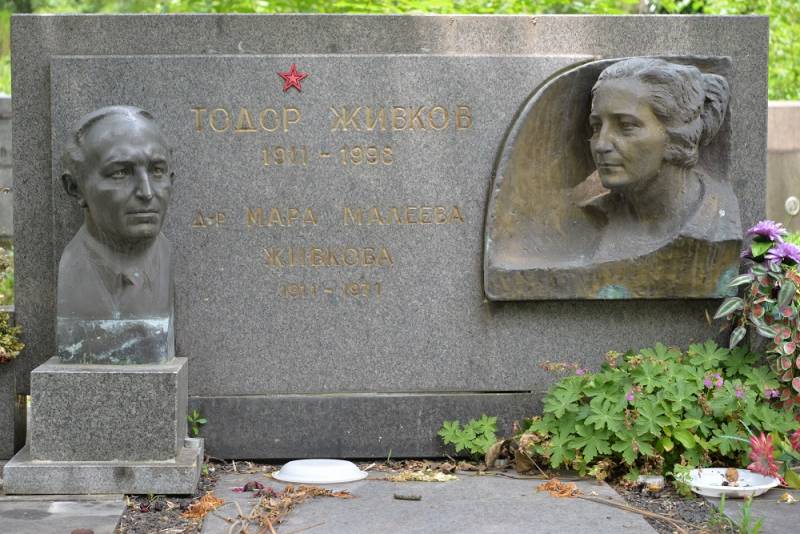
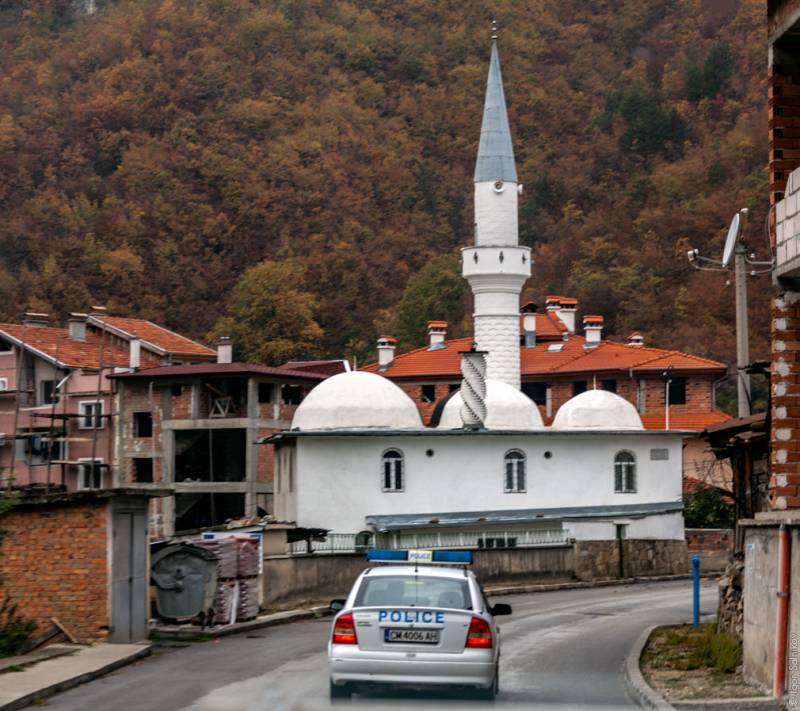
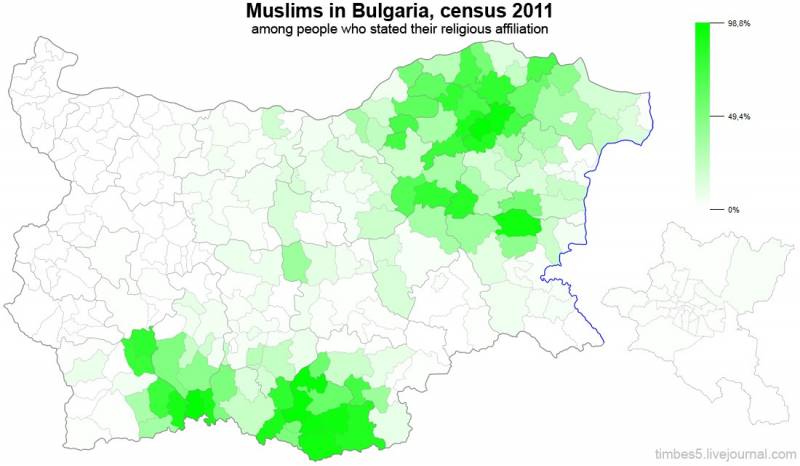
Information